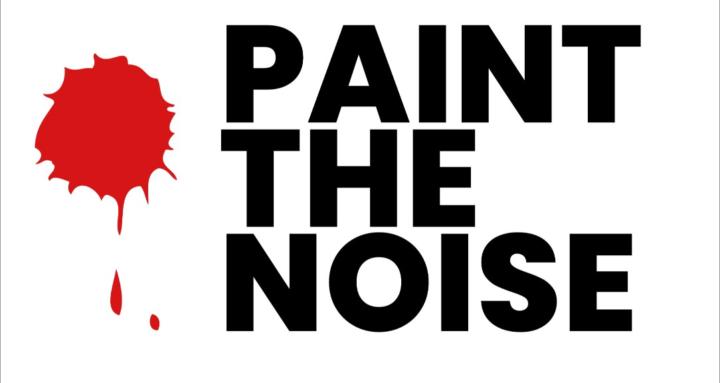Aug '25 (edited) • PTN Insider/Flashwire Report
PTN INSIDER REPORT 003 / The Piano Roll is Back / August 8, 2025
AI is entering sync, fast. But this isn’t a breakthrough. It’s a rerun. The real innovation is knowing history - and building what AI still can’t.
📍 1. CONTEXT / INDUSTRY SHIFT
There’s a new player in sync - and it’s not human.
ElevenLabs, best known for voice cloning, just launched a text-to-music engine. But what makes this different isn’t just the tech. It’s the partnerships.
They inked deals with Kobalt and Merlin, giving them access to real music catalogs. The machine isn’t inventing from scratch. It’s composing from human DNA.
They say it’s not copying. But it’s trained on our fingerprints.
This isn’t innovation. It’s iteration - with a new face.
And it’s happened before.
In 1908, player pianos started replacing musicians with punched paper rolls. The Supreme Court said it wasn’t a copy - because a human couldn’t read it. Composers got nothing.
That moment triggered a legal uprising. Congress passed the 1909 Copyright Act.
Now, the Piano Roll is back.
But this time, it’s digital, trained on your catalog, and disguised as “original.”
📂 2. CASE FOCUS / BREAKDOWN
Here’s what this looks like in real time:
• ElevenLabs + Merlin + Kobalt: launched a sync-ready AI music model trained on licensed catalogs, but with no visible creator involvement or opt-out system.
• WSJ confirmed the output is cleared for commercial use - music for TV, trailers, ads, and more. Their Terms say: no prompts using artist names or lyrics, but no mention of creator oversight.
• Reddit feedback is split: “audio sounds insane” but “feels like we’re handing over the keys to the car.” Creators are impressed - and nervous.
• 1908: Supreme Court ruled piano rolls weren’t copies. Payouts vanished. Congress responded with mechanical licensing in 1909 - the first fightback for creators against machine-made music.
This isn’t about nostalgia. It’s about pattern recognition. History is looping - and creators still aren’t in the room.
📈 3. STRATEGY OR BUSINESS PRINCIPLE
Don’t compete with AI.... BE what it can’t replace.
AI music is fast. But it’s risky. It’s unclear. It’s legally gray.
Studios want cleared, trustworthy, rights-secure music that won’t break in court or kill the moment on screen.
That’s OUR leverage.
Build systems that make you the fallback protocol when AI stumbles.
This isn’t about chasing speed. It’s about building trust.
Because in a world of generative models and licensing chaos - the most valuable composer is the one with a clean backend, emotional range, and bulletproof paper trail.
✅ 4. TAKEAWAYS / ACTION STEPS
Here’s how creators can stay vital while the machines move in:
- REGISTER EVERYTHING - Metadata matters now more than ever - it’s your proof of authorship.
2. EDUCATE YOUR CIRCLE - Most artists still don’t know AI is trained on real stems. Don’t let them stay in the dark.
3. JOIN FORCES - Indies can’t win this solo. Build alliances. Use community to hold the line.
4. AUDIT AI OUTPUTS - When it sounds like you, say something. Visibility leads to policy.
🔬 PTN LENS – History’s Loop vs the Creator’s Line
AI isn’t the villain..... But silence is.
What we’re seeing with ElevenLabs is a pattern: Legal compliance ≠ creative care. They licensed the catalogs, wrote the terms, built the model - but where were the creators? Where was the humanity?
The Piano Roll didn’t kill music. But it exposed a blind spot in the system - one where those who could be replaced were, and those who spoke up rewrote the law.
We’re in the same loop.Only now, it’s faster, funded, and framed as “innovation.”
PTN’s stance is clear: Creativity must be honored as a system, not just a sound.
Studios don’t just need speed - they need security. Not just music that sounds good - music that holds up when the lawsuits come.
That’s what we build. Music with trust baked in. Human-clearable. AI-aware. Bulletproof on paper. Because we’ve seen this movie before - and this time, we’re not just the talent.We’re the firewall.
🔍 5. FINAL REFLECTION / CREATOR LENS
This isn’t about fear, It's about memory.
Every tech shift comes with a blind spot - and if history teaches us anything, it’s that creators don’t get protected by accident.
The Piano Roll taught us to fight for mechanical rights. AI will teach us something else - if we speak up before it’s too late.
You don’t need to code to matter. You/We just need to stay visible, aligned, and loud enough not to be erased.
📚 - And that’s the PTN difference.
We don’t just analyze the system - we operate inside it, with our eyes wide open.
Right now, we play by the rules we’ve been given - the briefs, the splits, the backend grind. But everything we build - the workflows, the trust, the visibility - is designed to give us the position to change those rules.
We’re not just getting through the gates.
We’re building our own floor - and eventually,
We’ll redesign the whole building. 🫡
_
📎 SOURCE SIGNALS – Full Links -
WSJ – Voice Startup ElevenLabs launches AI music service
Tom’s Guide – ElevenLabs reveals AI music generator with full commercial rights
https://www.tomsguide.com/ai/elevenlabs-reveals-ai-music-generator-and-it-has-full-commercial-rights
Digital Music News – ElevenLabs launches AI-powered music generator with Merlin and Kobalt partnerships, but no major labels yet
Wikipedia – White‑Smith Music Publishing Co. v. Apollo Co. (1908)
Wikipedia – Copyright Act of 1909
10
20 comments
powered by

skool.com/ptn-pulse-6707
PTN Pulse is the starting point for serious creators in music and A/V. Real drops, real rhythm, no ego. Just signal... before the Broadcast.
Suggested communities
Powered by
